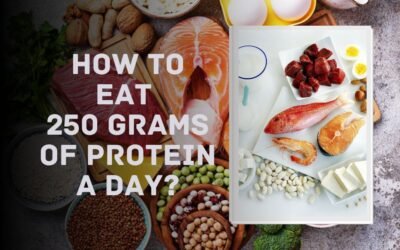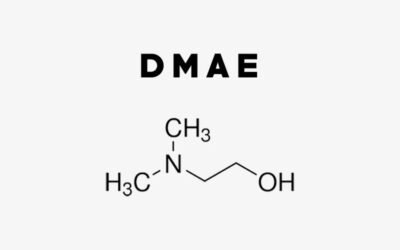Here’s What You Must Know About Whey Protein
If you have joined the gym on your own or by the suggestion of someone, you might have heard about protein supplement – Whey Protein Supplement. All the gym-goers know about & talks about it. Shaking their shakers and drinking immediately once the workout is over. Your trainers might be suggested for better results. You might have even started using it, or else might be thinking of giving it a try. Before you jump into any conclusion, let’s clear some of the things you should know about it.
Is it that important to have Whey Protein into your diet, or else it’s just a myth? Don’t know about you, but several people have an assumption that it’s one of the magic supplements, which is necessary to build muscle. Some even think that all the pro bodybuilders rely on it, which is not true at all. I don’t know whether you are aware or not. Still, the bodybuilders who endorse any particular brand, are getting paid to do so, their body is not built from taking supplements but from the consistent efforts and dedication which they put for many years not only on exercise but also on a diet. So, the short answer is NO IT’S NOT NECESSARY TO HAVE WHEY PROTEIN, but if you have it, it will be convenient for you.
What Exactly Is Whey Protein?
Whey is just a by-product of milk, or in other words, Whey Protein is extracted from the liquid material which is found during the manufacturing process of curd & cheese, once which was thrown away considering as a waste product. About 20% of the protein in milk is Whey.
Whey Protein is popular in bodybuilding & even recommended by doctors as a functional food because it’s one of the easily digested or say fast-acting compared to other types of proteins. It consists of all the EAAs (Essential Amino Acids), including the three main BCAAs (Branched Chain Amino Acids) Leucine, Isoleucine, and Valine, which helps in muscle tissue repair and growth.
What Are the Different Types of Whey Protein?
Due to its popularity & advancement in processing technology like microfiltration commercially three different types of Whey Proteins are available: Whey Protein Concentrate (WPC), Whey Protein Isolate (WHI) & Hydrolyzed Whey Protein Isolate (HWPI). And, each of them differs in the amount of protein, carbohydrates, lactose, minerals & fat.
1. Whey Protein Concentrate (WPC):
WPC is a concentrated whey product that contains protein concentration anywhere between 40 to 90% of whey protein. It contains the highest amount of fat & lactose, and it’s also one of the cheapest compared to other types of whey protein.
2. Whey Protein Isolate (WPI):
WPI has concentrated whey products which have 90 to 95% of protein concentration. In simple words, it has been further broken down from the Whey Protein Concentrate, so the amount of fat, lactose & carbohydrates are less compared to WPC, which makes it a good option for someone limiting their fat & carb intake and it will be costly compared to WPC.
3. Hydrolyzed Whey Protein Isolate (HWPI):
Hydrolyzed Whey Protein Isolate is a WPI which get further processed and broken down into small components known as peptides to make it easier for digestion and to get into the bloodstream more quickly. Due to extra procedures, HWPI is most expensive compared to the other two WPC & WPI.
Whichever you choose, all the three will give you similar benefits, but WPI & HWPI offers more purity compared to WPC.
When Should I Take Whey Protein?
How Many Scoops of Whey Protein a Day Is Safe?
Can You Replace Breakfast With a Protein Shake?
What Can I Eat Instead of Whey Protein?
Which Protein Is Best for a Beginner?
Is Whey Protein Powder Good for You?
Is Whey Inflammatory?
Is Whey Protein Better With Milk or Water?
When Should I Drink Whey Protein?
What Are the Risks of Whey Protein?
Some people say that it gives strain on the kidney, and one even asked, is whey protein bad for your liver? There’s nothing like that unless you have any pre-existing problem, then yes, all the high protein diets, including Whey protein, may create a problem.
What Are the Side Effects of Whey Protein?
Is Whey Protein Powder Bad for Your Kidneys?
Can Kids Have Whey Protein?
Can Skinny Guy Take Whey Protein?
Does Whey Protein Make You Fat?
Read Label Carefully – Before Purchasing:
How Many Serving of Pure Protein You Get per Container:
Let’s say, one company gives 24 grams of protein in a single serving of 29.4 grams & another company gives 26 grams of protein in a single serving of 35 grams. You may think, the second one, 26 grams of protein you’re getting, so let’s go with that. But wait; let’s see which one gives more.
First Company, 24 gram pure protein / 29.4 gram (one serving size) x 100 = 81.6% pure protein
Second Company, 26 gram pure protein / 35 gram (one serving size) x 100 = 74.28% pure protein
Total Number of Servings per Container:
For example, in 10 lbs Whey Protein Labels shows,
You get total 149 servings and 1 serving size is of 30.4 gram.
So, 30.4 x 149 = Total 4529.6 gram (Which is quite accurate & agreeable to go with.)
Is It Manufactured By or Manufactured For?
Closing Thoughts
Whey protein is not any magic science to build muscles. Persistence with workout and diet is the key. If you simply take whey protein and don’t eat well or not regularly workout, you won’t see any change. However, if you’re hitting the gym regularly and follow a proper diet, by adding whey protein, you’ll reap benefits. Also, many brands are available with different price tags, so go through this post and find out what are some of the important things to check out before buying, such as reading nutrient labels of your favorite whey protein and much more.








